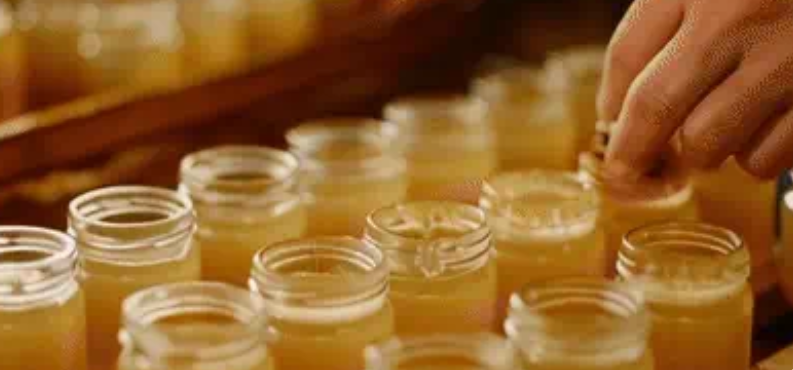As the lush landscapes of Hawaii beckon with their vibrant flora, they also present a unique opportunity for sustainable beekeeping. This practice not only supports the local ecosystem but also promotes the production of eco-friendly honey—a vital resource in maintaining ecological balance. In this article, we delve into the burgeoning world of sustainable beekeeping in Hawaii, exploring its benefits, challenges, and future prospects.
The Importance of Sustainable Beekeeping in Hawaii
Sustainable beekeeping is more than just a buzzword—it's an essential practice for preserving the environmental equilibrium in Hawaii. The islands' rich biodiversity requires conscientious efforts to maintain the delicate interplay between pollinators and plant life.
Why Sustainable Beekeeping?
- Conservation of Native Species: Bees play a critical role in pollinating native Hawaiian plants, many of which are not found anywhere else. Sustainable practices ensure these species thrive.
- Reduction in Pesticide Use: Opting for organic methods reduces dependency on harmful chemicals, preserving bee health and contributing to cleaner ecosystems.
- Promoting Biodiversity: By maintaining healthy bee populations, beekeepers can support a wide array of plant species, encouraging a robust and resilient ecosystem.
Challenges Facing Beekeepers in Hawaii
Despite its importance, sustainable beekeeping in Hawaii is not without its challenges. Understanding these obstacles is crucial for developing effective strategies to overcome them.
Pest Management
- Varroa Mite Infestation: These parasitic mites pose a significant threat to bee colonies, often leading to weakened hives. Implementing natural remedies and fostering mite-resistant bee strains are essential.
Climate Change Impacts
- Changing Weather Patterns: Unpredictable weather can disrupt foraging habits and affect flowering times, leading to inadequate food supplies for bees.
Limited Resources
- Land and Water Scarcity: With land being a premium resource in Hawaii, finding adequate space for apiaries can be a struggle. Water shortages also impact hive health and productivity.
Strategies for Sustainable Beekeeping
Incorporating sustainable practices into beekeeping operations is vital for overcoming these challenges and ensuring long-term success.
Adopt Integrated Pest Management (IPM)
- Natural Solutions: Use biological controls and organic treatments to manage pests like Varroa mites.
- Regular Monitoring: Keep a close watch on hive health to detect and address problems early.
Promote Genetic Diversity
- Breeding Programs: Encourage genetic diversity by cross-breeding local bee populations with more resilient strains to improve disease resistance.
Implement Water Conservation Techniques
- Efficient Water Use: Install rainwater collection systems and use drip irrigation to minimize water usage in apiaries.
Benefits of Sustainable Beekeeping for Hawaii's Ecosystem
The rewards of sustainable beekeeping extend far beyond honey production. They engage multiple facets of ecological health and community well-being.
Enhanced Pollination
- Bees significantly boost the pollination of both native and agricultural plants, leading to increased crop yields and healthier ecosystems.
Community Engagement
- Beekeeping initiatives offer educational opportunities, fostering community involvement and awareness about environmental conservation.
Economic Growth
- Sustainable practices can lead to high-quality, organic honey products, opening markets for niche, eco-friendly goods that attract environmentally conscious consumers.
The Future of Sustainable Beekeeping in Hawaii
As the movement towards sustainability gains momentum, the future of beekeeping in Hawaii looks promising. With increased awareness and investment in green technologies, beekeepers can expand their operations sustainably.
Innovative Technologies
- Employing cutting-edge technologies like hive monitoring sensors and AI-driven analytics can help optimize hive management and enhance productivity.
Collaborative Efforts
- Partnerships between beekeepers, researchers, and government bodies can foster knowledge exchange and support policy development for sustainable practices.
Expand Educational Programs
- By integrating beekeeping into educational curriculums, future generations can be empowered to take part in sustainable agriculture and conservation efforts.
Conclusion: Join the Movement
Sustainable beekeeping in Hawaii is not just a necessity—it's an opportunity to create a synergistic relationship between humans and nature. By embracing eco-friendly practices and fostering collaborative efforts, we can ensure the prosperity of bee populations while supporting local biodiversity and economies.
Take Action Today!
- Support Local Beekeepers: Purchase honey and bee products from local, sustainable sources.
- Educate Yourself and Others: Learn more about the importance of bees and share this knowledge with your community.
- Get Involved: Participate in beekeeping workshops or join local environmental groups to make a positive impact.
Together, we can make a difference in preserving Hawaii's natural beauty and biodiversity for future generations.
